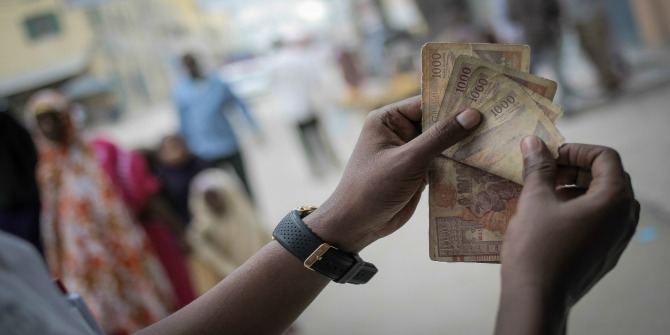Sustainability and Environmental, Social, and Governance (ESG) disclosures in Africa have been gradually evolving and accelerating in recent years, closing the gap with countries of Global North. Yet there are still social-economical, regulatory, and resources challenges, writes Andrey Bogdanov.
Global sustainability
The biophysical systems upon which human beings are totally dependent have not been challenged by human activities at the global scale before. Our impacts upon those planetary systems, as well as upon our social systems, cannot be adequately addressed by ad hoc solutions.
ESG and sustainability have become popular words in the today’s global business language. Yet much of that focus is usually on the Global North. There is not much attention on a continent of 1.2 billion people and one of the most critical for green transition resource rich part of the planet – Africa.
For a longtime success or failure of a commercial entity was considered in a very narrow and simplified manner of make money and act within the laws. The maximisation of shareholders’ value with minimum risk was key objective of any commercial entity. Society and government were assumed to be the primarily caretakers of the social, environmental, and other sustainability aspects via morality or rules and regulations. Today, that emphasis has shifted. Shareholders, and consumers, expect a more balanced approach where government, business, and individuals collaborate on ESG issues.
Some of the critical issues of ESG transition were originated outside of African continent. For instance, above-mentioned existential for human race CO2 emissions are the lowest per head on African continent. It is critical that Africa as part of global community committed to assist in addressing those and shall receive support for its just green transition ensuring sustainable future for Africa while keeping critical environmental issues under control.
With growing awareness of the importance of sustainable development and responsible business practices, governments, investors, and civil society organisations in emerging economies are increasingly demanding ESG disclosures from companies. It is leading to the development of new regulations, standards, and guidelines for ESG disclosure across the Globe. Yet, there are very specific challenges faced by countries in the Global South in their transition to a sustainable economy.
Africa transitional challenges
Challenges and opportunities for ESG transformation vary from country to country. But there some similarities in common across Africa.
- Economic: poverty, unemployment, and poor infrastructure. These issues are competing for the prioritisation by African governments with investments in sustainable infrastructure and development projects that can generate long-term sustainable economic growth. These issues require significant capital investment, but at the same time represent a unique opportunity as “new” infrastructure project can consider sustainability as its core unlike in other parts of the world where sustainability of the existing infrastructure is in question. Understanding of Africa advantages (for instance, African has over 50 per cent of the mineral resources required by the world for the green transition) and appropriate disclosures shall assist African countries in the dialogue with Global North in climate talks, allowing Africa to demand its appropriate seat as green transition powerhouse and ensure that its priorities have been taken into account. Similar much smaller leapfrogging opportunity was realised when Africa built its 21st century telecom industry instead of copy/paste of developed countries fixed telecom lines.
- Governance: quality of governance in some emerging countries may be an issue, especially when it comes to corruption. However, there are examples like Chile that have made significant progress in improving governance and implementing required reforms. Empowering African leadership, ensuring transparency and building capacity for making decisions based on the best global practices while considering local realities and priorities will help reduce corruption including those that have been used by some of the global actors to continue with their dominant positions in developing countries. Building its own internal capacity in fighting corruption across Africa and ensuring appropriate level of sovereign independence will drive better governance practices. More open transparent disclosure on its governance practices by Global North players will assist in preventing corrupt practices originated outside of Africa.
- Environmental: For years, as result of geopolitics, trade arrangements, and the dominance of primary industries, emerging economies in Africa became synonymous with deforestation, air, and water pollution. South Africa, which has more sunny days than most other countries, produces over 75 per cent of its electricity from coal and experiences regular electricity supply interruptions. Weak regulations and environmental standards, and monopolistic practices need to be eliminated to ensure better environmental and economic outcomes.
- Social challenges: With a few exceptions, emerging economies face huge social issues, including poverty, inequality, and housing crisis. These challenges can be addressed through sustainable investment in areas such as education, healthcare, and affordable housing. Africa will become a priority on the investment map with its young population and rich natural resources. Africa can become home for happily living people or source of non-stop immigration crisis across the Globe. South Africa is one of the best disclosing countries when it comes to social disclosure, and it can certainly leverage this advantage by lifting environmental disclosure to the same level.
ESG disclosure
Disclosure and data are becoming key drivers of the just transition in Africa as investors, governments and civil society organisations are recognising the financial risks and opportunities associated ESG issues. Despite the challenges, companies operating in Africa can benefit from ESG disclosure by improving their reputation and financial performance. In doing so, they will be contributing to sustainable development via better transparency, good risk management, legal and regulatory compliance, stakeholder engagement and communication. They will be able to leverage ESG as a competitive advantage by showing strong ESG performance and lower long-term ESG risk through better disclosure that can attract and retain investors, clients, consumers, talented employees who share value of ethical and sustainable companies and, for investors, searching for “sustainable Alpha”.






As ESG and sustainability take centre stage in global conversations, it’s crucial to shift our focus to the often-overlooked continent of 1.2 billion people – Africa. Your comments highlight the challenges and opportunities that come with ESG transition, touching on economic, governance, environmental, and social aspects. Africa, possessing over 50% of the mineral resources crucial for the green transition, stands as a vital player. I believe this paradigm shift not only enhances Africa’s global standing but also positions it as a green transition powerhouse, paving the way for a sustainable and prosperous future.
Great insights on the evolving ESG landscape in Africa. The post effectively highlights the challenges and opportunities, emphasizing the importance of collaboration and transparent disclosure. A compelling call for companies to leverage ESG for sustainable development and competitive advantage. Well-articulated and thought-provoking!
Wonderful insight on the ongoing growth of ESG in Africa. As well as great highlighting of the current major issues and challenges that are faced. Very eye-opening!
The vibrant youth population of Africa coupled with its abundant natural resources indeed creates a compelling argument for sustainable investments. The call to strengthen ESG disclosures goes beyond the allure of attracting investments. The highlight that “Africa possesses over 50% of the mineral resources required by the world for the green transition” sparks intriguing thoughts. It’s not just about potential; it’s about how Africa, through responsible resource utilization, can redefine the global story of sustainable development and environmental stewardship.
Actually, disclosure is a key factor for investors, governments and civil society to recognise the financial risks and opportunities associated ESG issues. With growing awareness of the importance of sustainable development and responsible business practices, governments, investors, and civil society organisations in emerging economies, including Central Asian countries, are increasingly demanding ESG disclosures from companies.
With growing awareness of the importance of sustainable development and responsible business practices, governments, investors, and civil society organisations in emerging economies, including Central Asian countries, are increasingly demanding ESG disclosures from companies. Actually, disclosure is a key factor in ESG issues.
Thank you for sharing Andrey. Insightful and interesting, really enjoyed the read and look forward to the next blog. There is so much support for ESG as well as anti ESG movements, why is that the case if we need to reduce our carbon footprint to reduce climate risk?
With growing awareness of the importance of sustainable development and responsible business practices, governments, investors, and civil society organisations in emerging economies, including Central Asian countries, are increasingly demanding ESG disclosures from companies. Actually, disclosure is a key factor of the financial risks and opportunities associated ESG issues.
This insightful and thought-provoking article sheds light on the evolving landscape of Sustainability and Environmental, Social, and Governance (ESG) disclosures in Africa. In a world where discussions often center around the Global North, this piece emphasizes the critical importance of acknowledging Africa’s unique position as a green transition powerhouse. The challenges faced by African nations in ESG transformation are aptly articulated, from economic disparities to governance issues and environmental concerns. The call for collaboration between government, business, and individuals in addressing ESG challenges resonates with the changing expectations of shareholders and consumers worldwide. As the global community strives for a sustainable future, the article underscores the pivotal role of ESG disclosure in shaping Africa’s narrative and contributing to positive economic, environmental, and social outcomes. Well done Andrey such a great piece.
Thank you for the insight of how ESG can positively impact Africa and how African companies’ utilization of it is a form of competitive advantage and risk management. Also, the notion of Africa having over 50% of mineral resources for the world to transition to green is eye-opening and powerful.
Very insightful and inspiring , well done Andrey
Great Insights and wonderful opportunity for Africa to transition to business models that support ESG outcomes in the future.
Insightful and ongoing initiatives in ESG are vital aspects within Africa and are important not only for short term, but long-term. Well worth the read and thought provoking.
Great article! I found the information very insightful and well-researched. Thank you for shedding light the challenges and opportunities for ESG transformation in Africa.
Great perception of the role of ESG disclosure as a key driver for a just transition in Africa, acknowledging that despite the challenges, companies can benefit by improving their reputation and financial performance through better transparency, risk management, and stakeholder engagement.
This was very insight, ESG disclosure from African companies is so so crucial as the effects of climate change and global warming will be felt the most in Africa, its so important that companies hold themselves accountable to this fact.
Truly impressed with the insightful content and commitment to raising awareness about environmental issues. In a world where environmental concerns are increasingly crucial, this serves as an excellent resource for anyone looking to deepen their understanding of eco-friendly practices and contribute to positive change. It’s inspiring to see a platform dedicated to empowering individuals to make informed choices that collectively contribute to a more sustainable and environmentally conscious future.
Terrific perception on the role of ESG disclosure as a key driver for a just transition in Africa, acknowledging that despite the challenges, companies can benefit by improving their reputation and financial performance through better transparency, risk management, and stakeholder engagement.